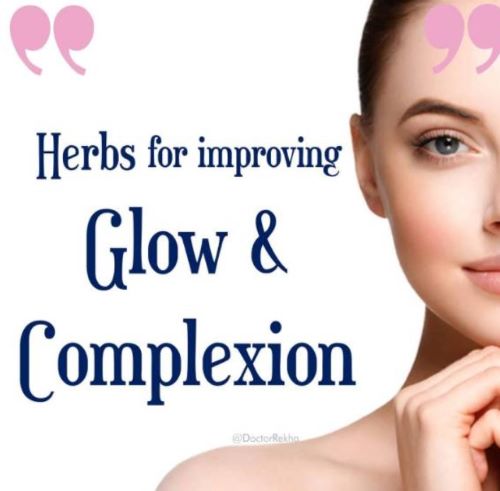Ayurvedic skincare incorporates traditional healing methods from India. The practice offers natural facials, treatments for skin problems, and herbal remedies for the skin. Today, numerous skincare products based on Ayurveda are available for purchase. It is crucial to review the ingredients and the quality in order to achieve optimal results. According to Ayurveda, the treatments for skin are designed to target specific skin types and their related concerns. Understanding your type of skin Ayurvedic skin care treatments are designed to cater to a range of skin conditions. According to Ayurveda, an individual’s skin type is determined by their Doshas. Vata In Ayurveda, Vata refers to the combination of air and space elements within the body. As per Ayurveda, an individual with predominant Vata Dosha may have dry and coarse skin that becomes wrinkled without proper moisturization. Lower fat levels characterize Vata-type skin and require additional moisturizing, both externally and internally. Pitta Individuals who have high body heat levels frequently experience oily skin and are susceptible to developing acne and rosacea. Kapha Kapha skin tends to feel cold, produce excess oil, and is prone to developing pimples, whiteheads and retaining water. Utilizing dry brushing is a beneficial method for removing blockages, stimulating the lymphatic system and exfoliating the skin. Causes of skincare problems According to Ayurveda, numerous factors can lead to skincare issues. Imbalance of Doshas An excess of Vata can lead to dry, flaky, and rough skin. An excess of Pitta can lead to swelling, redness, and acne. Excessive Kapha can lead to the excessive production of oil in the skin, resulting in clogged pores and a dull complexion. Poor gut health Skin issues can result from difficulties in digesting food, as per Ayurveda. When your digestion is not functioning correctly, harmful substances known as toxins may accumulate in your body. This may lead to skin problems, such as acne, eczema, or psoriasis. Issues in diet Consuming foods that do not suit your body type (Prakriti) or consuming unhealthy processed foods can disrupt your body’s equilibrium and lead to skin issues. Consuming unhealthy food can exacerbate Dosha imbalances and lead to skin issues. Environmental factors Excessive pollution, sun exposure, adverse weather conditions and using chemical products can also damage the skin and lead to skin issues. Emotional stress Emotional stress and psychological factors can affect the skin. Ayurveda recognizes the interconnectedness of the mind and body. Emotional stress, consequently, may lead to the development or, furthermore, aggravation of skin issues. Toxin buildup The accumulation of toxins (Ama) in the body from unhealthy habits, poor dietary choices, or digestive issues may lead to skin problems. These toxins are capable of obstructing the pathways, disrupting blood circulation, and damaging skin wellness. My skincare routine I have acne-prone skin and therefore, finding the right kind of products that suit my skin has been a struggle, until I found them in Ayurveda. Ever since, I haven’t looked back. After starting my career and gaining some experience, now I have my own line of products that I personally use and also recommend to my patients. I use them on a daily basis. Here is my daily skincare routine: Step 1- Cleansing with organic black sesame oil The first step of my skincare routine is cleansing my face with organic black sesame oil. I strongly believe in double cleansing. So, I massage my face with organic black sesame oil to remove makeup, dirt, and all the impurities that have accumulated on my face. If you are not aware, organic black sesame oil holds lots of importance in Ayurveda. It has lots of health benefits and is the best recommended oil for Abhyanga (self-oil massage). Step 2- Cleansing with a mild herbal scrub This herbal scrub smells so divine. Furthermore, it has Vetiver as the main ingredient. In addition, Vetiver is an amazing Ayurvedic herb that has a cooling effect on your skin. Once dried, I rinse it off and then, dry my face gently using use a microfiber towel. Step 3- Applying the magical oil This is the last and the most crucial step of my skincare routine – applying 4 drops of my magical Glow Oil. I can’t tell you how much this oil has helped reduce me with reducing my blemishes and dark circles, and makes my skin glow. Happy skin, happy me. Benefits of Vetiver and organic black sesame oil Apart from my Glow Oil, organic black sesame oil and the herbal scrub with Vetiver as the main ingredient help keep my skin healthy and happy! Indeed, Ayurveda has a lot to say about Vetiver and, furthermore, organic black sesame oil for its amazing health benefits. Vetiver Vetiver is a perennial grass that thrives in the southern regions of India and regrows annually. Known as Khus in Ayurveda, it is scientifically called Vetiveriazizanioides and has a refreshing scent with hints of citrus and earthy notes that provide a cooling sensation. It is a good skincare herb. Specifically, vetiver water or oil is commonly utilized for addressing various skin issues. Vetiver roots are processed and incorporated into beauty products. For a long time, individuals have believed that this particular item is unique due to its ability to withstand high temperatures and provide a refreshing, cooling sensation. It is commonly found in households, particularly during the summer months. During the summer, your body can heat up, leading to increased acne, breakouts, irritation, and sunburns. Vetiver oil has a calming effect on the skin, consequently, it promotes relaxation and, furthermore, reduces stress. It helps keep the skin safe from harsh weather, lessens damage from oxygen, lessens wrinkles, and makes the skin tighter and more hydrated. Renowned for improving hair and combating scalp infections, Vetiver essential oil is derived from Indian grass. The process of making vetiver essential oil involves boiling the roots in water; subsequently, the… Continue reading Skincare Secrets for Radiant Skin with Ayurveda
Skincare Secrets for Radiant Skin with Ayurveda

